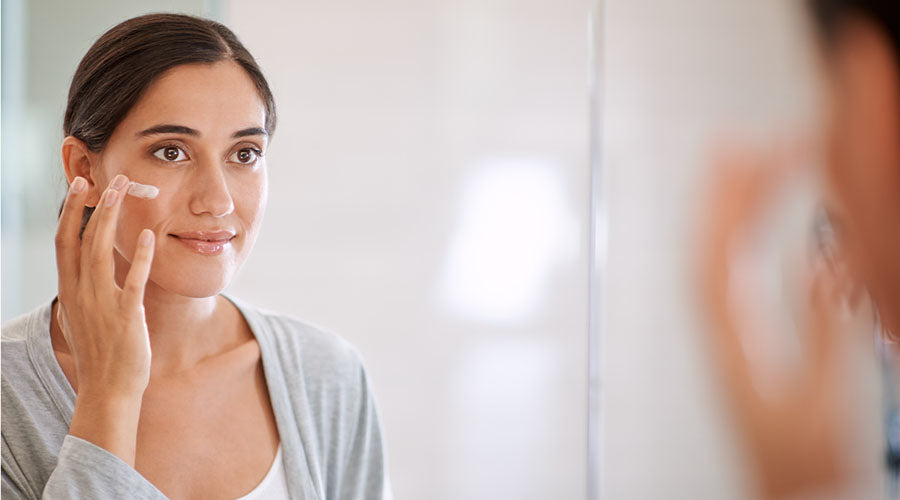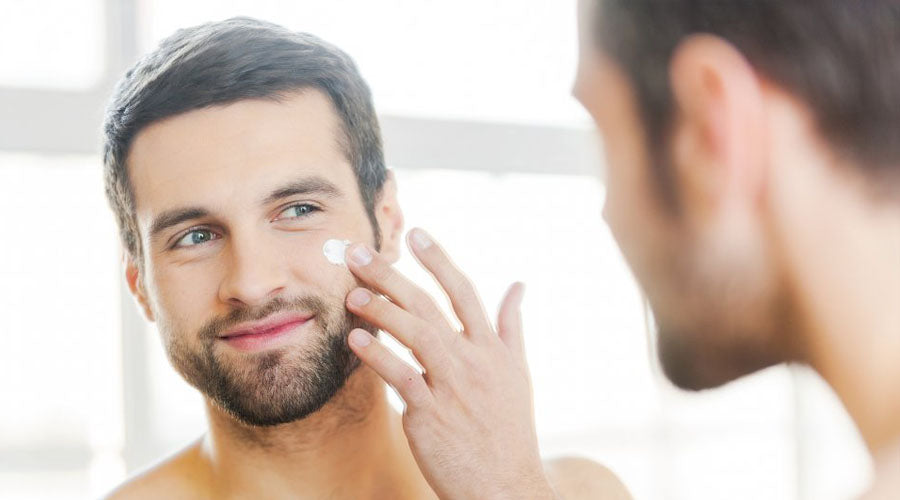What does toner do
|
|
Time to read 8 min
|
|
Time to read 8 min
If the word “toner” brings up painful memories of astringent products that sting so much it feels like your face is on fire, then you probably haven’t touched the stuff since you were an acne-laden teenager. And it’s time we set the record straight. Toners have come a long way, and these days most skin and beauty professionals consider them an essential part of any skin care routine (even in adulthood). Every skin type—from dry to oily and everything in between—can benefit from toner. Need some convincing? Then read on to learn what toner is, what it does for your skin, how to use it, and the best toner for your face.
Table of content
At its simplest, toner is a liquid product that’s applied to the face. It’s typically made up of water and a mixture of other ingredients that vary by brand. Toners are generally used after cleansing and before moisturizing as part of an overall skincare routine.
The toners of your teenage years probably stung so much because they contained high amounts of alcohol. The alcohol was added to strip oils from the skin—while this was thought to remove the oils that might contribute to acne, it also had a severely dehydrating effect. Luckily, more natural solutions were found, and today’s toners are typically gentler and more versatile. There are plenty of alcohol-free toners available, and a wide range of products exist to address different skin concerns. We’ll take a look at some of these potential uses in the next section.
The specific uses and benefits of toner vary a bit depending on the ingredients. That said, here’s a general overview of what face toners can do for you:
Now that you understand the benefits of modern-day toners, you may be leaping to slather the stuff on your face. But before you incorporate toner into your skin care routine, it’s important to know the right way to use it. Here are some tips for putting toner to its best use:
As you can see, using toner is quite simple. While it does add an additional step to your skin care routine, that step is fast, painless, and beneficial to the skin.
If you start to research face toners, you’ll probably notice that a few ingredients keep showing up in different articles, DIY recipes, and recommendations. Some of the most popular face toner ingredients right now include witch hazel, rose water, and apple cider vinegar. What is it about these ingredients that contributes to some of the best toners around? Let’s check them out.
Witch hazel frequently shows up in face toners, and for good reason. This natural ingredient has been shown to soothe inflammation and irritation; heal minor skin injuries; reduce redness and oiliness; hydrate the skin and reduce water loss; tighten skin; minimize the appearance of pores, black heads, and white heads; and slow down signs of aging. It’s also high in antioxidants and boasts antimicrobial properties.
Like witch hazel, rose water is an ingredient that frequently shows up in natural toners. Also like witch hazel, it’s packed with good-for-you ingredients. As the name implies, rose water is a liquid that’s made from water and rose petals. (The petals are distilled with steam.) This fragrant liquid has long been used as both a perfume and a medicinal product; evidence suggests it’s been in use since as long ago as the 7th century. Why are humans so drawn to rose water?
Research suggests it has several properties that make it great for the skin. For starters, it’s loaded with antioxidant, anti-inflammatory, and antimicrobial properties. This helps explain why it’s been shown to fight off acne, reduce inflammation, soothe irritation from conditions such as eczema or rosacea, reduce redness, treat skin infections, protect against cell damage, and slow down signs of aging.
You may be familiar with apple cider vinegar as a culinary staple, but it’s got plenty of uses in your toiletry case as well. That’s because it’s loaded with nourishing vitamins A, B1, B2, B6, C, and E along with alpha hydroxyl acids that help remove dead skin cells. It’s also been shown to have antibacterial, antifungal, and antiviral properties. Together, these factors help explain why apple cider vinegar has been shown to balance skin pH, prevent oily buildup, and remove impurities from the skin.
As you can imagine, the best face toner for most people is one that draws on plant-based and effective ingredients such as the ones described above. That is why we made the best face toner we could by combining all three of these star ingredients.
Our botanical face toner spray combines all of the best face toner ingredients around—while leaving out the harsh chemicals found in many conventional toners. This facial mist is completely free of toxins, perfumes, sulfates, and other harsh and potentially harmful chemicals. And like all of our products, it’s cruelty-free. Our robust yet gentle formula combines witch hazel, rose water, and apple cider vinegar for a formulation that’s ideal for all genders and all skin types—from dry or sensitive to oily or acne-prone. Together, the safe and effective ingredients in our formula have been shown to:
Toner is a liquid skincare product used after cleansing to help balance the skin's pH, remove any remaining impurities, and prepare the skin for further treatments. It can hydrate, refine pores, and enhance the absorption of serums and moisturizers. Depending on its formulation, toner may also offer additional benefits, such as soothing irritation, controlling oil production, or providing antioxidants, making it a versatile step in a skincare routine.
Toners are not strictly necessary, but they can be beneficial for many skin types. They help balance pH, remove leftover impurities, and prepare the skin for other products. Ultimately, whether to use one depends on your individual skin needs and routine.
A toner helps balance the skin's pH, removes any leftover impurities after cleansing, and hydrates the skin. It also prepares the face for better absorption of serums and moisturizers.
Yes, toner can be good for everyday use, especially if it suits your skin type and contains beneficial ingredients. Regular use can help maintain skin balance and enhance hydration.
Many dermatologists do recommend toners, especially those formulated with soothing and hydrating ingredients. They can help balance the skin's pH and remove residual impurities. However, it's essential to choose a toner suited to your skin type and concerns.




